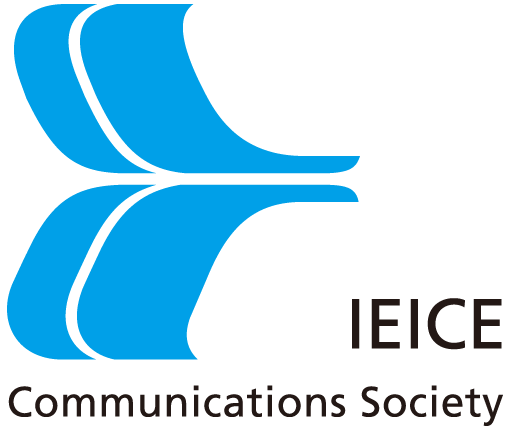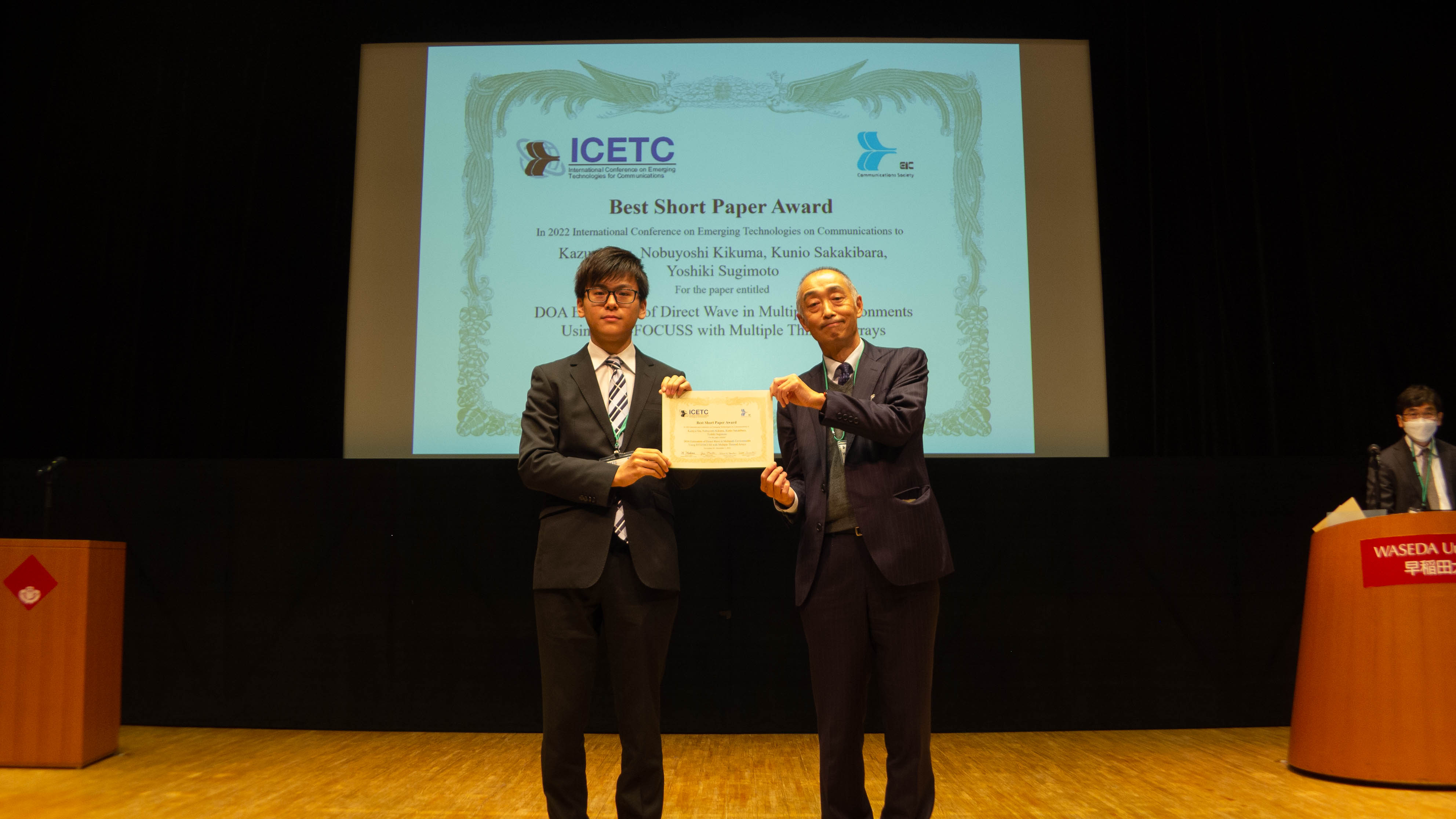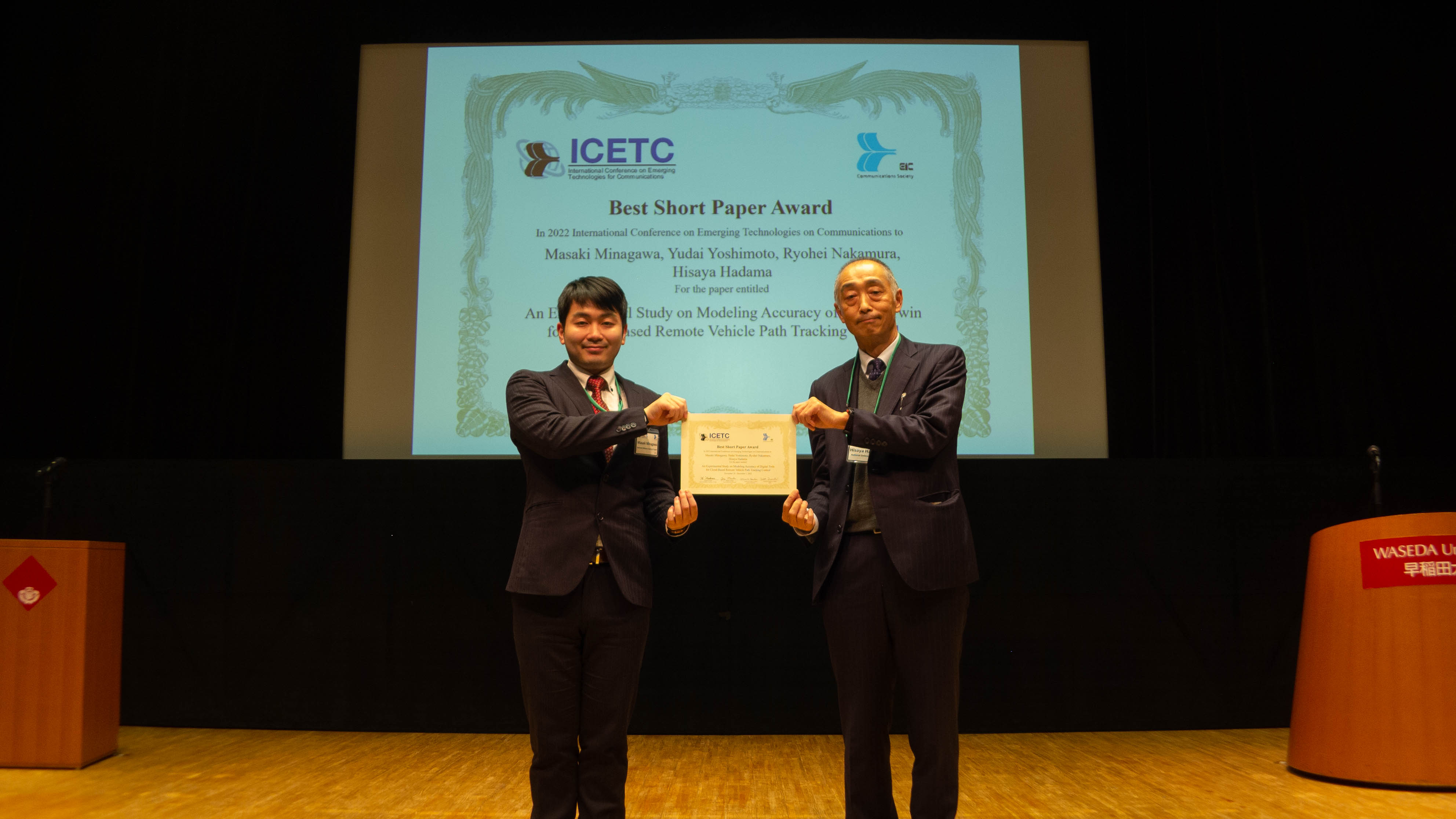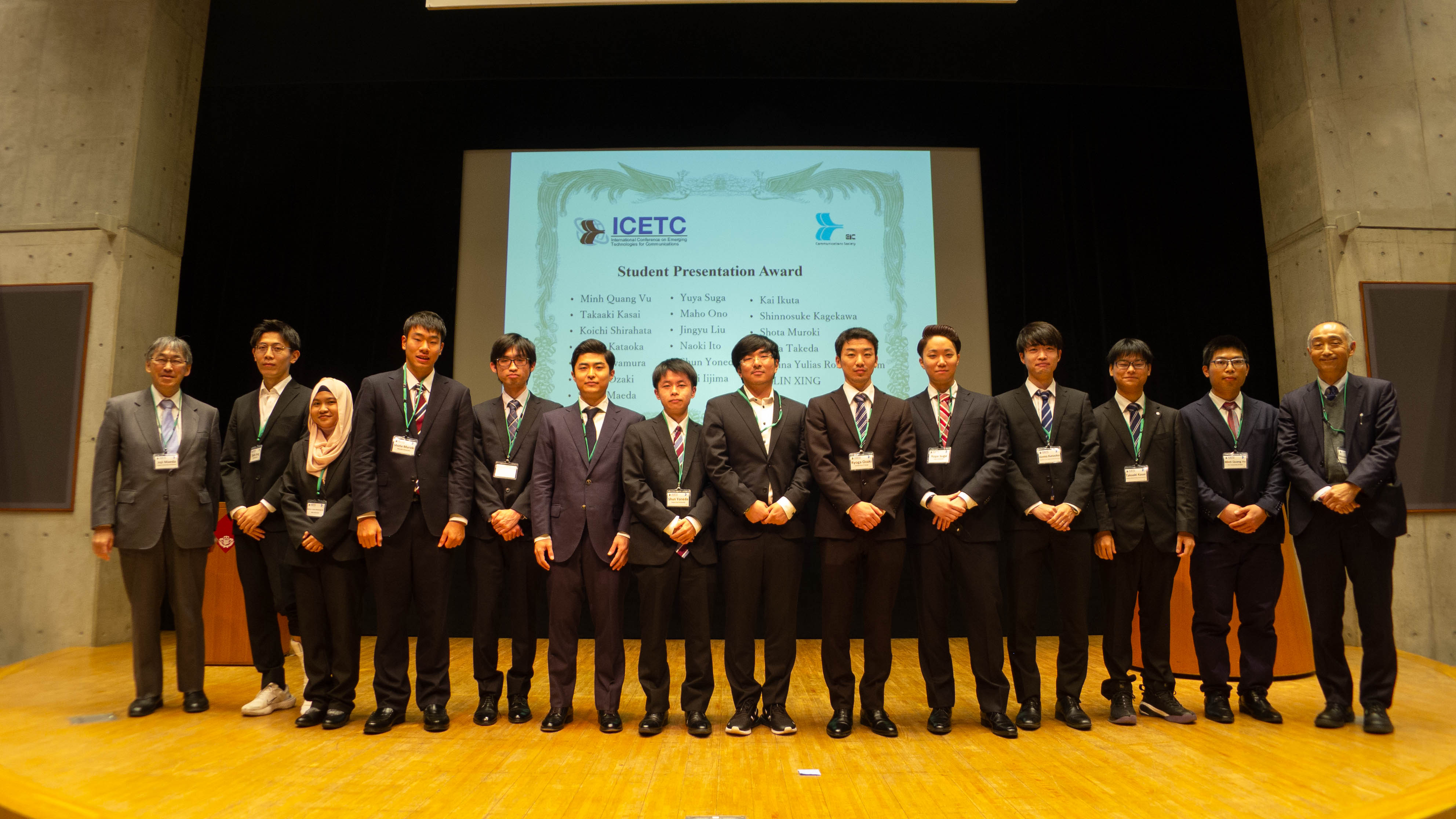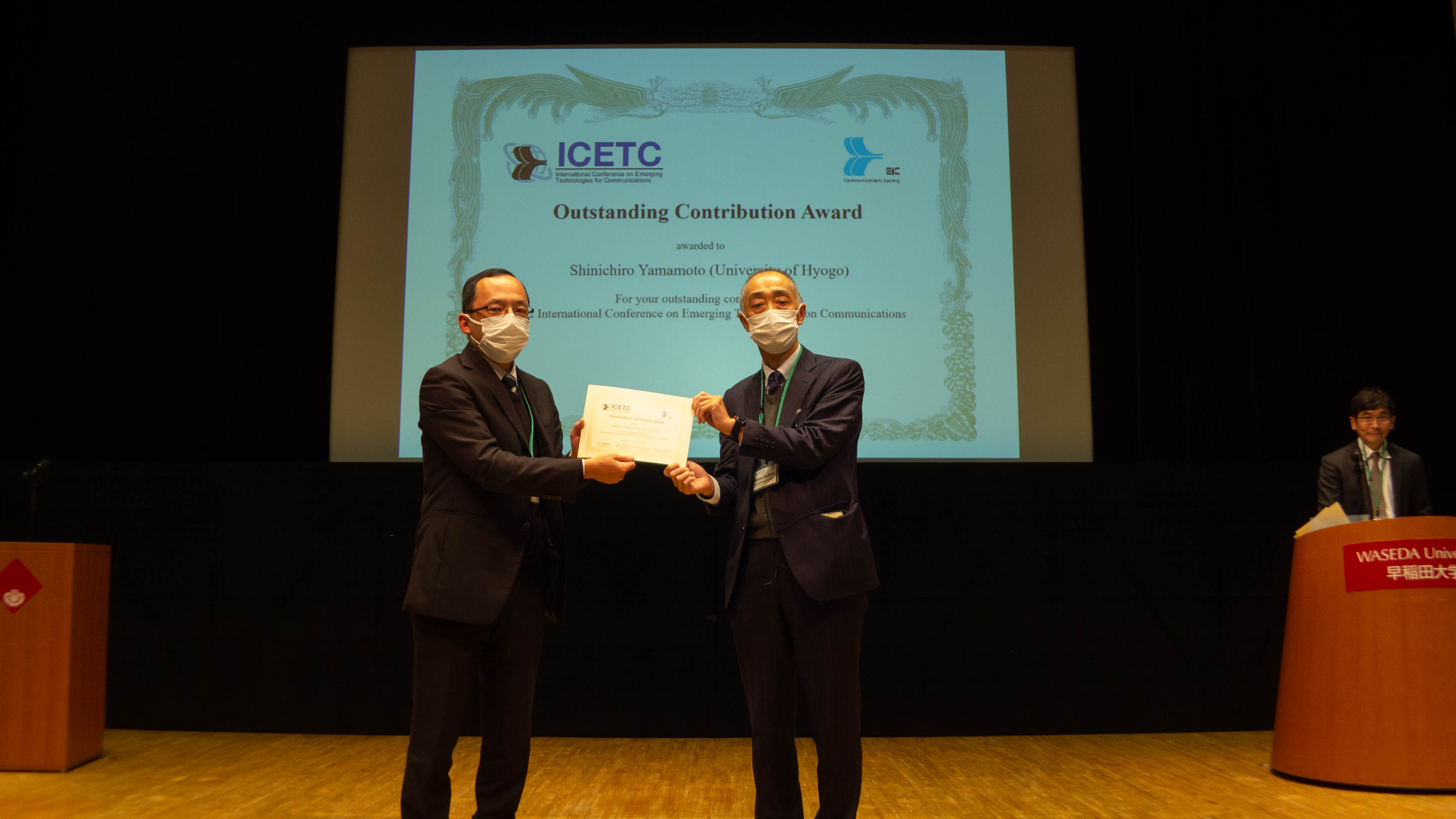Program
Program

Program at a Glance
|
Time JST |
Nov. 29 (Tue) | Nov. 30 (Wed) | Dec. 1 (Thu) | |||||||||
| Ibuka | Room 1 | Room 2 | Room 3 | Ibuka | Room 1 | Room 2 | Room 3 | Ibuka | Room 1 | Room 2 | Room 3 | |
| 8:45 | Opening | |||||||||||
| 9:00 | Special 1 | Invite 3 | Special 2 | Special 3 | ||||||||
| Oral 1 | Short 1 | Short 2 | Short 3 | |||||||||
| 9:30 | ||||||||||||
| 10:00 | ||||||||||||
| 10:30 | ||||||||||||
| 11:00 | Keynote 5 | |||||||||||
| Keynote 1 | Oral 4 | Short 6 | Short 7 | Short 8 | ||||||||
| 11:30 | ||||||||||||
| Keynote 6 | ||||||||||||
| 12:00 | Keynote 2 | |||||||||||
| 12:30 | ||||||||||||
| 13:00 | ||||||||||||
| 13:30 | ||||||||||||
| 14:00 | Oral 2 | Oral 3 | Short 4 | Short 5 | Invite 4 | Invite 5 | Oral 5 | Short 9 | Short 10 | Short 11 | ||
| 14:30 | ||||||||||||
| 15:00 | ||||||||||||
| 15:30 | ||||||||||||
| 16:00 | ||||||||||||
| Invite 1 | Invite 2 | Award | Oral 6 | Short 12 | Short 13 | Short 14 | ||||||
| 16:30 | ||||||||||||
| Keynote 3 | ||||||||||||
| 17:00 | ||||||||||||
| 17:30 | Keynote 4 | |||||||||||
| 18:00 | Closing | |||||||||||
Keynote Speakers
TUESDAY 29 NOVEMBER 2022
Time 11:15 – 12:00 (JST)
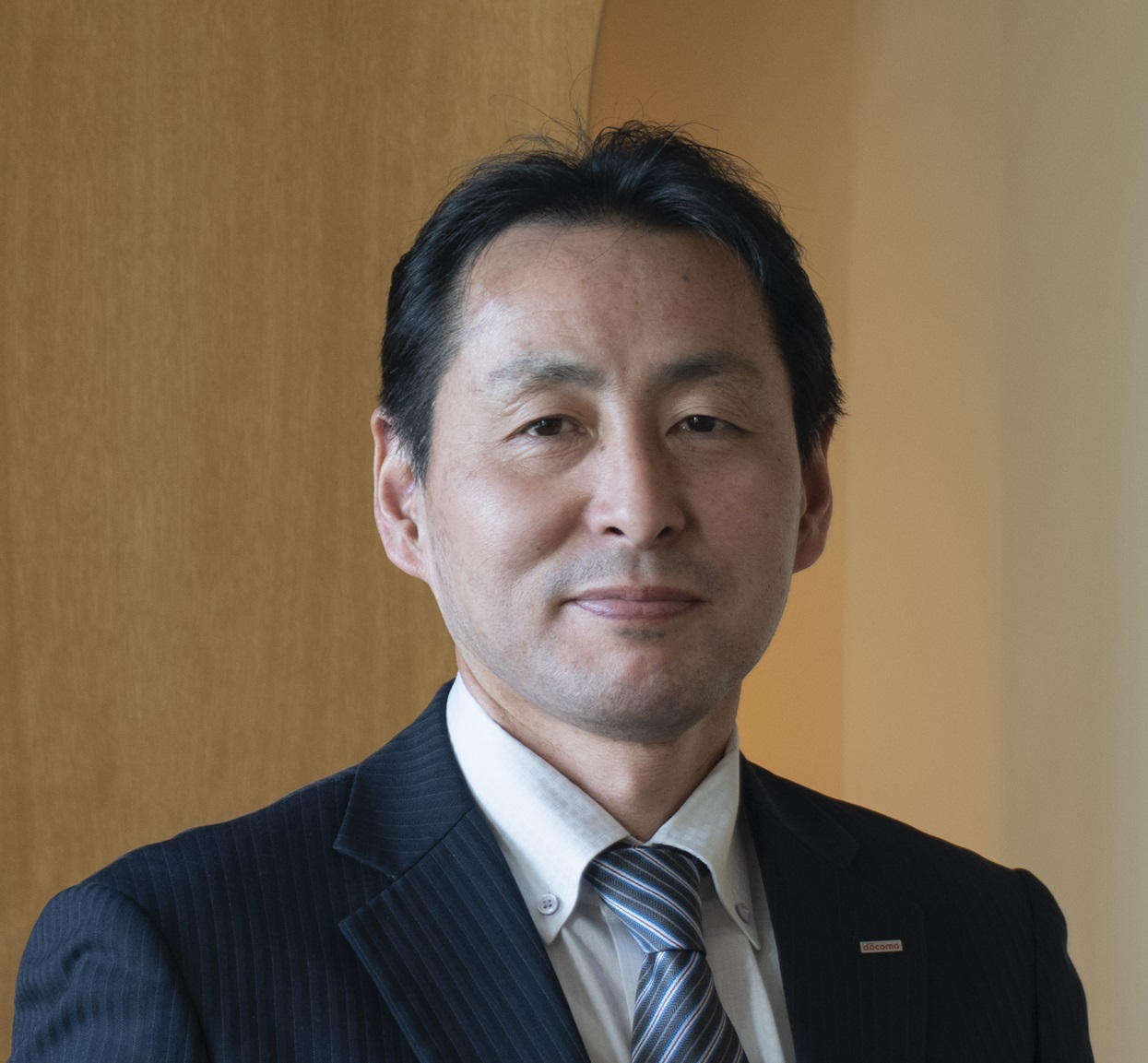 Takehiro Nakamura
Takehiro Nakamura
Chief Technology Architect, NTT DOCOMO, Inc.
Title: 5G evolution and 6G powered by IOWN
Abstract: Study, development and standardization for
technologies toward the evolution of 5G are ongoing, taking into
account issues in early 5G services and emerging market needs. In
parallel, research focused on technologies and services for 6G is
accelerating throughout the world. NTT DOCOMO is very aggressive for
5G Evolution and 6G. And NTT group is promoting IOWN, Innovative
Optical and Wireless Network. Both of 6G and IOWN are targeting common
future communication society in 2030s. In this presentation, our
vision and latest activities for 5G Evolution and 6G powered by IOWN
will be explained.
Biography: Mr. Takehiro Nakamura joined NTT Laboratories in
1990. He is now Chief Technology Architect in NTT DOCOMO, Inc. Mr.
Nakamura has been engaged in R&D and the standardization activities
for advanced radio and network technologies of W-CDMA, HSPA,
LTE/LTE-Advanced, 5G and 6G. Mr. Nakamura has been contributing to
standardization activities in 3GPP since 1999, including as vice chair
and chair of 3GPP TSG-RAN from 2005 to 2013. He has also been the
Acting Chairman of Strategy & Planning Committee of 5G Mobile
Communications Promotion Forum(5GMF), the leader of Cellular System
Task Group of ITS Info-communications Forum, and the leader of White
Paper Subcommittee in Beyond 5G Promotion Consortium in Japan.
TUESDAY 29 NOVEMBER 2022
Time 12:00 – 12:45 (JST) (Online)
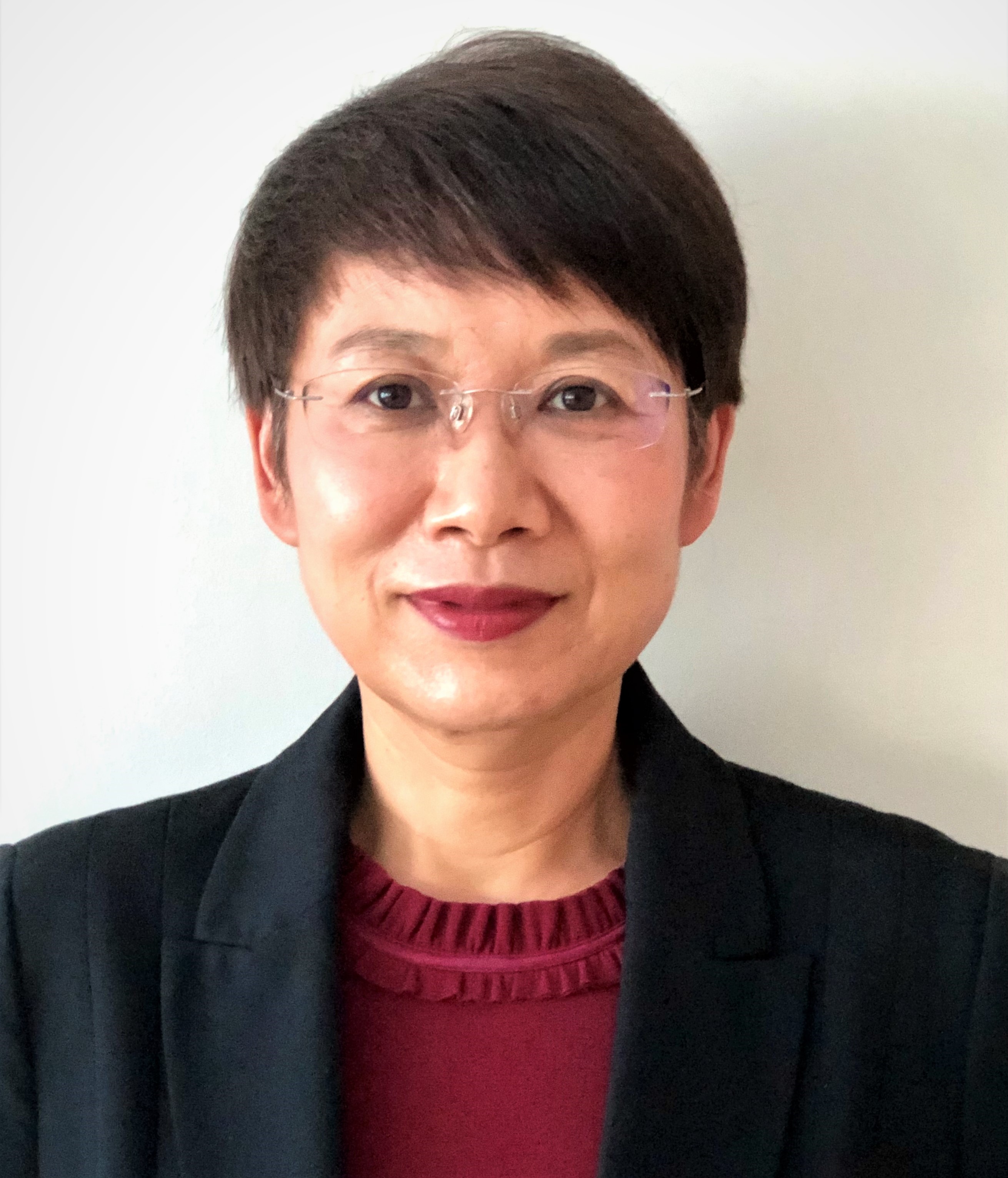 Sun Sumei
Sun Sumei
Principal Scientist, Deputy Executive Director (Research), and Head of
the Communications and Networks Dept at the Institute for Infocomm
Research (I2R), Singapore
Title: 5G to 6G: Driving applications, enabling technologies,
research and standardization
Abstract: The fifth generation (5G) network, promising to
provide enhanced mobile broadband (eMBB), mission-critical internet of
things (IoT), and massive IoT, aims to be the digital transformation
enabler in all industry sectors. Moving to 2030, the physical world,
digital world, and human world will be even more seamlessly connected
and interacted, creating brand new experiences in work, leisure,
learning, study, and social activities, accelerating the digital
transformation in processes and practices in all industry sectors and
public services. These will form the core driver for 6G innovation.
Drive for sustainability, represented by the Sustainable Development
Goals (SDGs) in the United Nations (UN) Agenda 2030 also calls for
6G’s contribution. In this talk, we will start with a brief review on
a few strategic 5G vertical clusters in Singapore, analyze some of the
unaddressed gaps from 5G, and discuss the driving needs for 6G
technologies. The 6G vision and research initiatives will then be
shared. As examples, we will present some selected research in massive
ultra-reliability low-latency communications (M-URLLC), joint sensing
and communication (JSAC), intelligent and software-defined agile
aggregation of licensed and unlicensed spectrums, artificial
intelligence-supported system, network, and radio environment.
Finally, we will provide an overview of the 6G standardization
frontlines and the roadmap.
Biography: Sumei Sun (F’16) is a Principal Scientist, Deputy
Executive Director (Research), and Head of the Communications and
Networks Dept at the Institute for Infocomm Research (I2R), Singapore.
She is also holding a joint appointment with the Singapore Institute
of Technology, and an adjunct appointment with the National University
of Singapore, both as a full professor. Her current research interests
are in next-generation wireless communications, joint
sensing-communication-computing-control design, and industrial
internet of things. She is Editor-in-Chief of IEEE Open Journal of
Vehicular Technology, a Distinguished Speaker of the IEEE Vehicular
Technology Society 2018-2024, Chair of the IEEE Transactions on
Machine Learning in Communications and Networking, a member at large
(MAL) with the IEEE Communications Society (2021-2023), and a member
of the IEEE Vehicular Technology Society Board of Governors
(2022-2024). She is also the Chairperson of Special 5G Strategy Task
Force, Telecommunication Standards Advisory Committee (TSAC) of
Infocomm Media Development Authority (IMDA) Singapore, and Chairperson
of TASC’s Future Networks Work Group, leading the TSAC’s standard
development activities in future networks.
WEDNESDAY 30 NOVEMBER 2022
Time 16:45 – 17:30 (JST)
(Online)
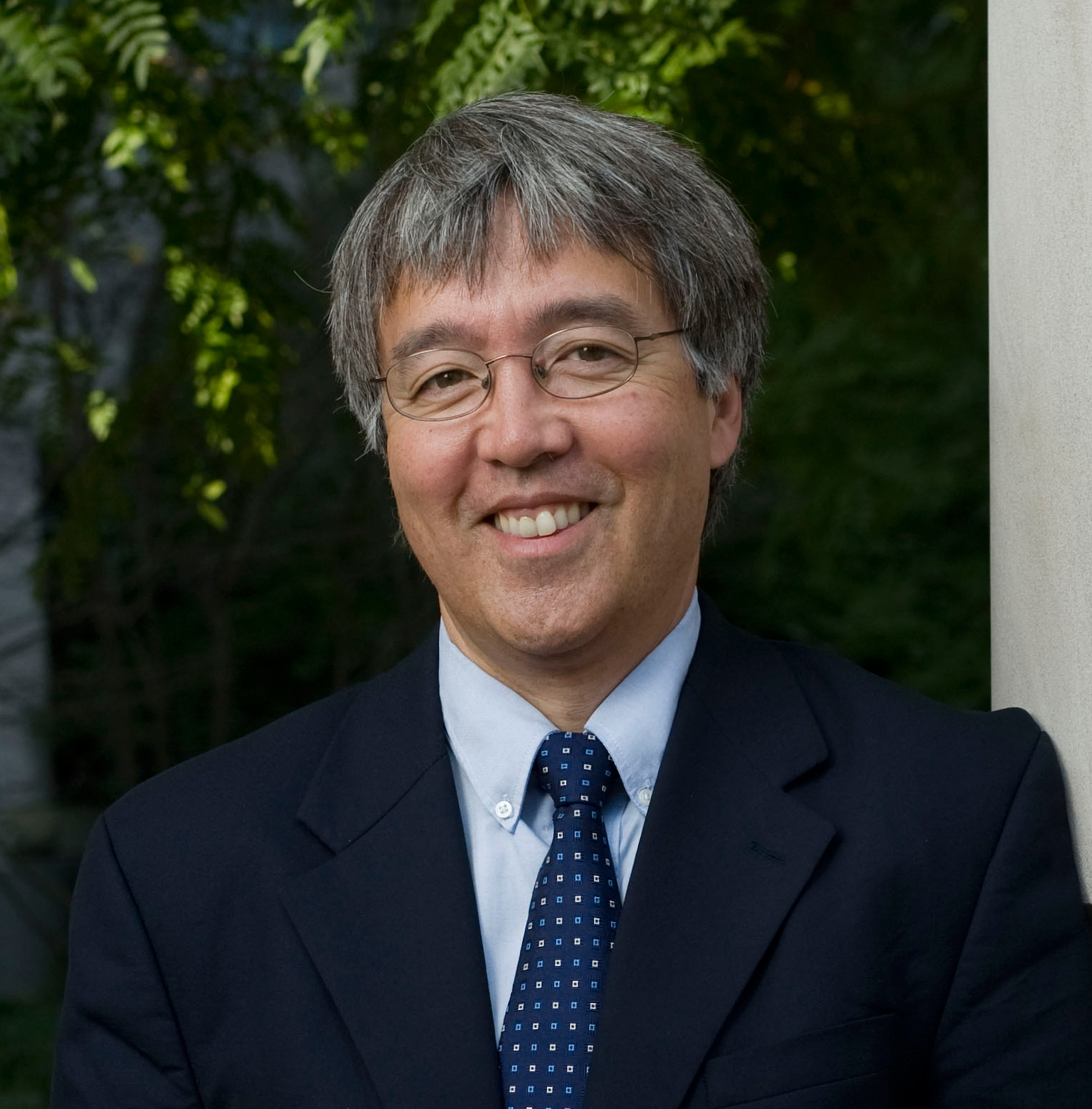 Jim Kurose
Jim Kurose
Distinguished University Professor of Computer Science and Associate
Chancellor for Partnerships and Innovation
University of
Massachusetts Amherst
Title:
The Software-ization of Networking: Protocols, People,
Pedagogy
Abstract: It has been said that “software is eating the world.”
With the arrival of software-defined networking (SDN), software is
“eating” networking as well. In this talk, we consider the impact of
SDN on the evolution of network protocols, on network management and
“people in the loop”, and on how and what we will teach to future
generations of networking students.
Biography: Jim Kurose is a Distinguished University Professor
of Computer Science and Associate Chancellor for Partnerships and
Innovation at the University of Massachusetts Amherst. He received his
PhD in Computer Science from Columbia University and BA in Physics
from Wesleyan University. His research interests include computer
network architecture and protocols, network measurement, and
multimedia communication. He has been a visiting researcher at IBM
Research, Technicolor Research, INRIA, and Sorbonne University in
France. From 2015 to 2019, Jim served as Assistant Director at the
National Science Foundation, where he led the Directorate of Computer
and Information Science and Engineering, and in 2018, served as an
Assistant Director in the White House Office of Science and Technology
Policy. He has received a number of awards for his research, teaching
and service, including the IEEE Infocom Award, ACM SIGCOMM Lifetime
Achievement Award, ACM Sigcomm Test of Time Award, IEEE/CS Taylor
Booth Education Medal, and the CRA Distinguished Service Award. He is
the co-author of the best-selling textbook, Computer Networking: a Top
Down Approach (Pearson). He is a member of the National Academy of
Engineering and an ACM and IEEE Fellow.
WEDNESDAY 30 NOVEMBER 2022
Time 17:30 – 18:15 (JST)
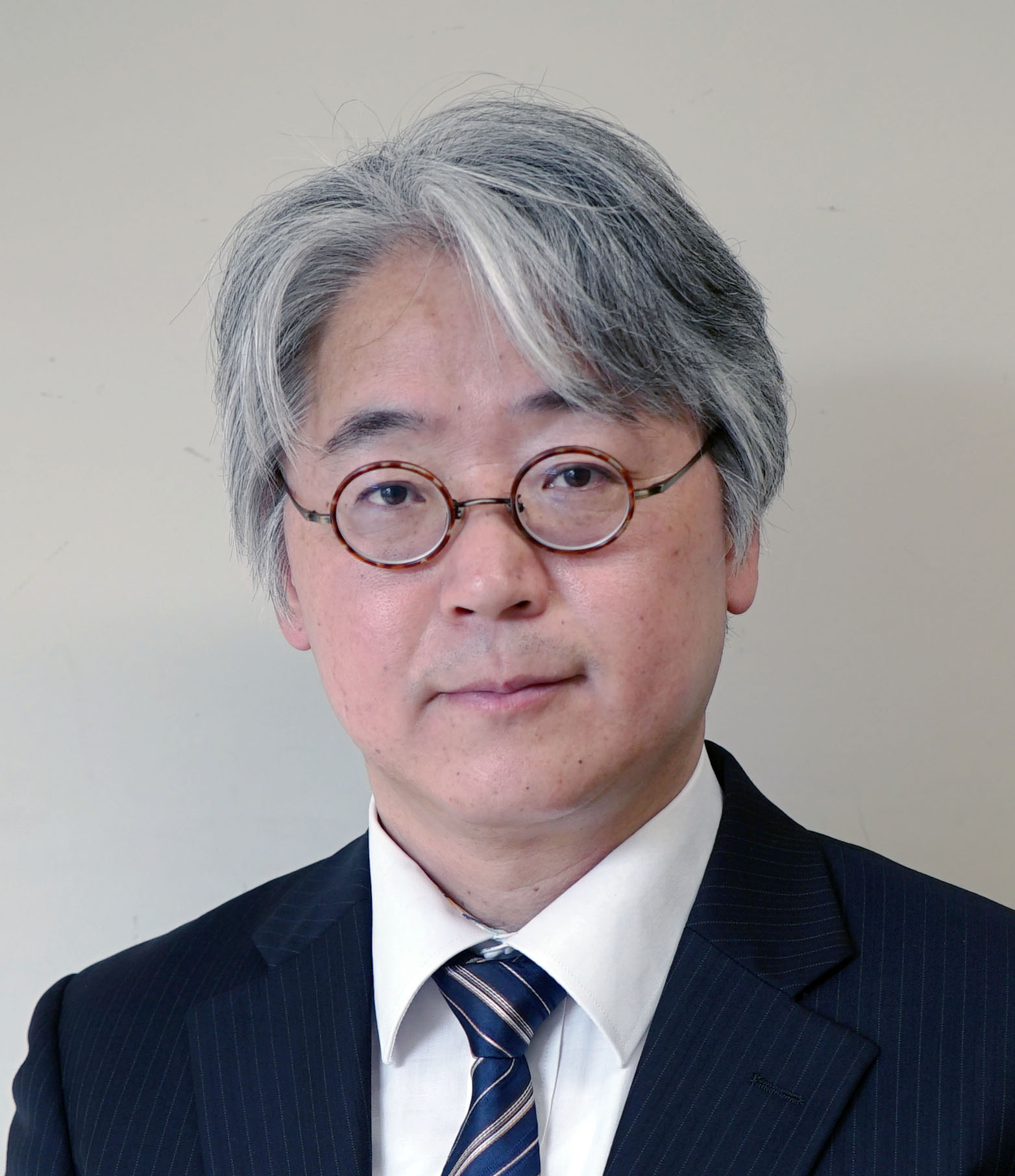 Morio Toyoshima
Morio Toyoshima
Director General, Wireless Networks Research Center
National
Institute of Information and Communications Technology (NICT)
Title: New Frontiers in Space Laser Communications for Beyond
5G/6G
Abstract: Currently, as discussions on the way how the
information and communication technology (ICT) should be in Beyond 5G
(B5G) and 6G are accelerating, the space laser communication is
becoming more advanced and active in the field of space
communications. The satellite quantum key distribution (QKD) also
gathers more attention for the future secure network. The realization
of the advanced communication network is expected to connect the
terrestrial and non-terrestrial networks (NTN) seamlessly. B5G/6G will
require further global spatial expansion of the network than the
current 5G, which direction is toward not only two-dimensional so far
but also three-dimensional expansion for the mobile platforms called
NTN in the future. In this talk, the trend and future vision of the
space laser communication technology in the B5G/6G era will be
introduced.
Biography: Morio Toyoshima received a Ph.D. in electronic
engineering from the University of Tokyo (Tokyo, Japan) in 2003. He
joined the Communications Research Laboratory (CRL, Ministry of Posts
and Telecommunications) in 1994 and shortly after was engaged in
research for the Engineering Test Satellite VI (ETS-VI) optical
communication experiment. He joined the Japan Aerospace Exploration
Agency (JAXA; formerly, NASDA) to assist in the development of the
Optical Inter-orbit Communications Engineering Test Satellite (OICETS)
from 1999 to 2003. He spent one year as a guest scientist at Vienna
University of Technology, Austria in 2004. In April 2006, he returned
to NICT, where he performed ground-to-OICETS laser communication
experiments in 2006. He was involved in the development of the Small
Optical TrAnsponder (SOTA) for 50-kg-class satellites and conducted
the satellite-to-ground quantum communication experiments. He was also
involved in the development of the communication payloads for the
Engineering Test Satellite 9 (ETS-9). He is now the Director General
of the Wireless Networks Research Center in NICT, since April 2021.
THURSDAY 1 DECEMBER 2022
Time 11:00 – 11:45 (JST)
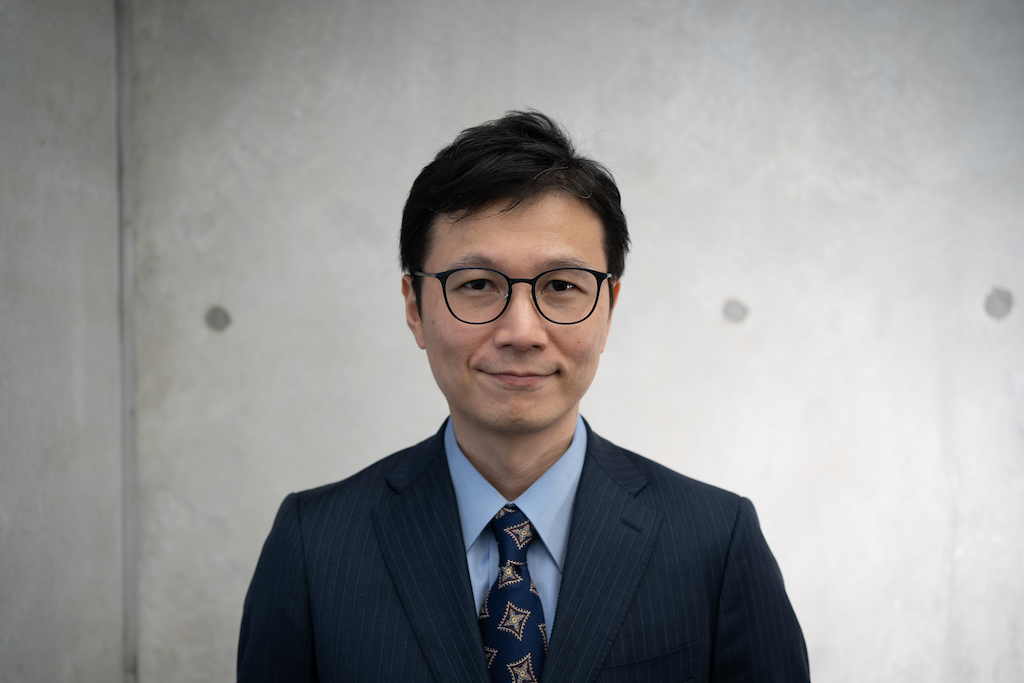 Yoshihiro Kawahara
Yoshihiro Kawahara
Professor, Graduate School of Engineering
The University of
Tokyo
Title: Did Contact Tracing Work? -- Mobile Sensing and Social
Design
Abstract: The time lag between infection and the onset of the
disease led to the explosive spread of COVID-19. Finding and isolating
infected persons with no symptoms was considered critical, and many
measures were taken worldwide. A number of systems were proposed to
record human-to-human contact information using a ranging mechanism
based on Bluetooth radio on mobile devices. Now, two years after the
start of the pandemic, reports are coming in one after another on
whether these systems have actually worked. It is clear that the way
contact tracking systems are implemented and operated largely reflects
the social design within a country or organization. This talk will
discuss how mobile sensing is implemented worldwide for contact
tracking and its use in society.
Biography: Yoshihiro Kawahara is a Professor in the School of
Engineering at the University of Tokyo. He specializes in ubiquitous
computing systems. In 2022, he developed MOCHA, an on-campus contact
notification application, and is leading its operation on campus. He
is the founder and Director of the Research Institute for Inclusive
Society through Innovation (RIISE). He also serves as the Head of
Research at mercari R4D since 2022. He received Ph.D. in Information
Communication Engineering from the University of Tokyo in 2005.
THURSDAY 1 DECEMBER 2022
Time 11:45 – 12:30 (JST)
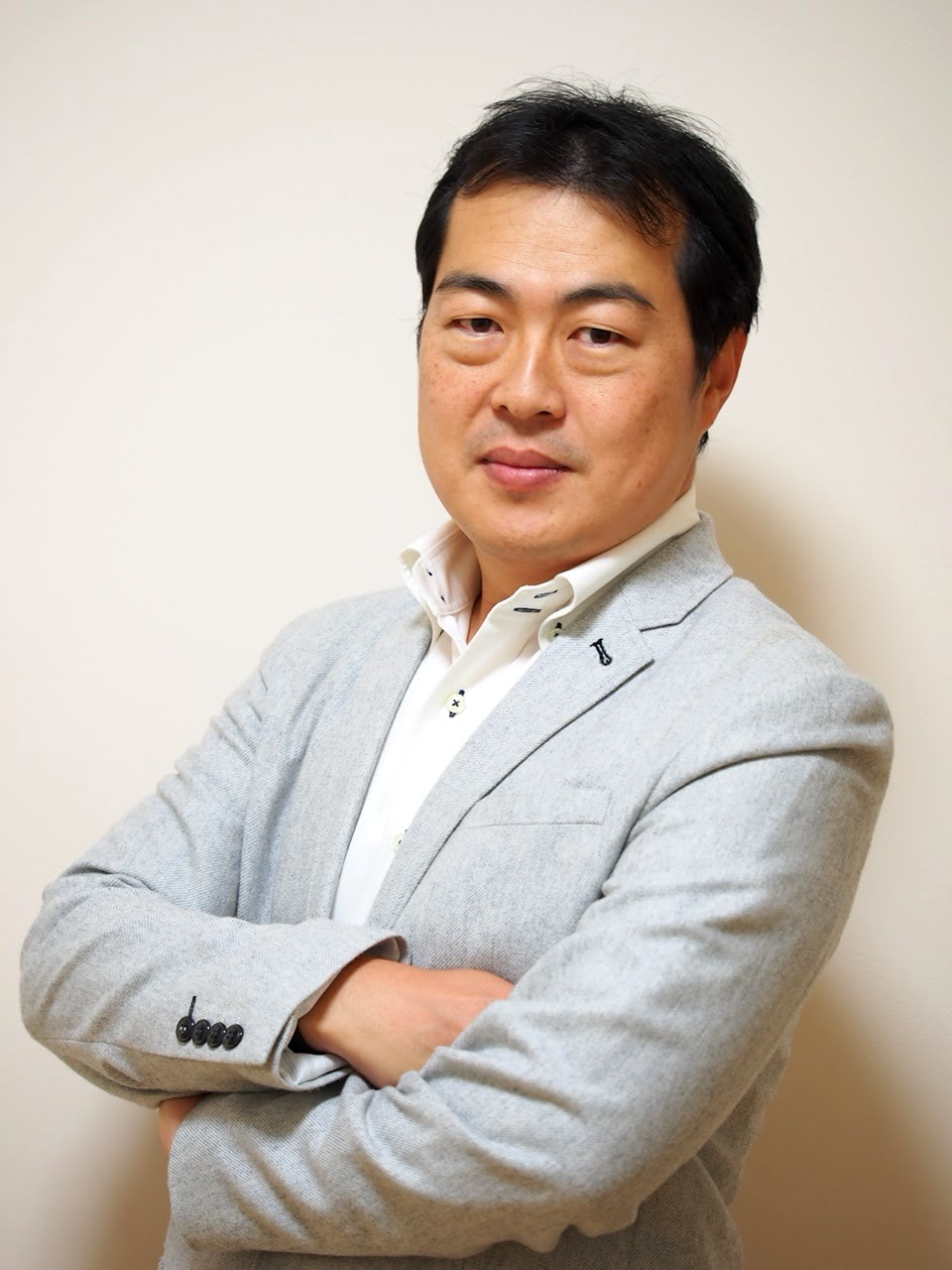 Yutaka Arakawa
Yutaka Arakawa
Professor, Faculty of Information Science and Electrical Engineering
Kyushu University
Title: ICT-based Behavior Change Support System
Abstract: Cyber-physical systems (CPS) are becoming a reality.
Our human activities and psychological states are already being
estimated by data from various sensors in our smartphones and
wearables. Interestingly, we already believe the results displayed on
our smartphones and make decisions and take actions based on them.
This can work in a bad way, such as fake news, but it is also being
used in the field of behavior change support. As a matter of fact, an
application called Digital Medicine has been used this year to treat
lifestyle-related diseases in Japan. This talk introduces the latest
research on human activity recognition and behavior change support
systems using ICT technology.
Biography: Yutaka Arakawa is a Professor at Kyushu University.
He received B.E., M.E., and Ph.D. degrees from Keio University, Japan
in 2001, 2003, and 2006. He was an assistant professor at Keio
University (2006-2009), and at Kyushu University (2009-2013). After
working as an associate professor at Nara Institute of Science and
Technology (2013-2019), he became a professor at Graduate School of
Information Science and Electrical Engineering, Kyushu University,
Japan in 2019. He studied as a visiting researcher at ENSEEIHT
(France) in 2011, at DFKI (Germany) in 2012, and at UCLA (US) in 2018.
He received the IPSJ Yamashita SIG Research Award in 2011, the 24th
Hiroshi Ando Memorial Award in 2011, the 2nd prize in the mobile app
competition held in MobiCom2014, the IPSJ Nagao Special Researcher
Award in 2015, UbiComp/ISWC Best Demo Award in 2016, IPSJ/IEEE-CS
Young Computer Researcher Award in 2018, and IEEE PerCom Best
Demonstration Award in 2019. His current research interests are human
activity recognition and behavior change support system. He is a
member of IEICE, IPSJ, IEEE, and ACM.
Invited Special Session Speakers
Invited special talk by the 2021 IEICE Best Paper Award winners and
2021 IEICE Communications Society Excellent Paper Award winners.
Special Session 1
WEDNESDAY 30 NOVEMBER 2022
Time 9:00 -
10:45
Room: IBUKA
Sophomore Created VHF Wireless Power Exciter for Medium Wave AM
Radio Broadcasting Receiver
Yuri Kitagawa and Takashi Ohira (Toyohashi University of
Technology)
Modern Channel Coding for Synchronization Errors (Online)
Ryo Shibata (Tokyo University of Science)
Miniaturization and Test Results of Shinkansen Antenna for Overhead
Line Voltage Detection and Wireless Communication
Yoshihiro Matsumura, Takeshi Nishiyama, Eishi Sasaki (Central Japan
Railway Company), Kengo Nishimoto, Hiroyuki Akutsu (Mitsubishi
Electric Corporation), Yukitoshi Sanada (Keio University)
Special Session 2
THURSDAY 1 DECEMBER 2022
Time 9:00 -
10:30
Room: IBUKA
Resource allocation models for efficient and fault-tolerant
software-defined networks
Takehiro Sato (Kyoto University), Seiki Kotachi (Kyoto University),
Ryoichi Shinkuma (Shibaura Institute of Technology), Eiji Oki (Kyoto
University)
5G NR features Realizing Ultra-Reliable and Low Latency
Communication
Tetsuya Yamamoto (Panasonic Holdings Corporation)
Beyond 5G Network Architecture and its state-of-the-art Research
for Access Network
Naoaki Yamanaka (Keio University)
Special Session 3
THURSDAY 1 DECEMBER 2022
Time 9:00 -
10:30
Room: Room 1
Improved monitoring of Flex Ethernet over OTN links
Takafumi Tanaka (NTT)
Field Trial of Dynamic Mode Switching for 5G New Radio Sidelink
Communications towards Application to Truck Platooning (Online)
Manabu Mikami, Kohei Moto, Koichi Serizawa, and Hitoshi Yoshino
(Softbank)
Wireless Access Technology Based on Factor Analysis of
Communication Quality Using Redundant Information
Koji Yamamoto (Kyoto University), Takayuki Nishio (Kyoto University),
Akihito Taya (Kyoto University), Mai Ohta (Fukuoka University), Makoto
Taromaru (Fukuoka University), Kazuto Yano (ATR), Babatunde Ojetunde
(ATR), and Keiichiro Mori (ATR)
Invited Speakers
Invited talk recommended by Technical Committees of IEICE
Communications Society and IEICE International Sections.
Invite Session 1
TUESDAY 29 NOVEMBER 2022
Time 16:15 -
17:45
Room: IBUKA
The switching system of WPT and communication for B5G/6G
Naoki Hasegawa (SoftBank Corp.)
Future life in 2030s realized by Beyond 5G
Kentaro Ishizu (NICT)
Utilization of space communications for evolving 6G system
Eiji Okamoto (Nagoya Institute of Technology)
Invite Session 2
TUESDAY 29 NOVEMBER 2022
Time 16:15 -
17:45
Room: Room 1
Real-time MIMO transmission experiments using FPGA based MIMO
DSP
Shohei Beppu (KDDI Research, Inc.)
Future Challenges for EMC Research in Telecommunication Service
aimed Innovative Sustainable Society in 2040
Kimihiro Tajima (NTT Advanced Technology Corporation)
Optical network nodes for high mode count multi-mode fiber
networks
Ruben S. Luis (NICT)
Invite Session 3
WEDNESDAY 30 NOVEMBER 2022
Time 9:00 -
10:45
Room: Room 1
Antennas Measurement for Beyond 5G and 6G Wireless Applications
using Radio over Fiber Technologies (Online)
Satoru Kurokawa (National Institute of Advanced Industrial Science and
Technology (AIST))
LED lighting considering circadian rhythm by melanopic illuminance
control (Online)
Akane Aoki, Saeko Oshiba (Kyoto Institute of Technology)
Digital Native Infrastructure Implementation based on
Internet-by-Design
Hiroshi Esaki (The University of Tokyo)
Wireless communication and its problems in healthcare / hospitals
in Japan
Eisuke Hanada (Saga University)
Invite Session 4
WEDNESDAY 30 NOVEMBER 2022
Time 14:00 -
15:45
Room: IBUKA
Distillation-based Serverless Federated Learning over Sensor
Networks
Akihito Taya (the University of Tokyo)
Distributed acoustic sensing using frequency division multiplexing
technique for deployed optical fiber networks
Hiroshi Takahashi (NTT Corporation)
Probabilistic Digital-Twin
Hideyuki Shimonihi (Osaka University)
Weakly coupled 3-mode 4-core fiber with standard cladding
diameter
Yuto Sagae (NTT Access Network Service Systems Laboratories)
Invite Session 5
WEDNESDAY 30 NOVEMBER 2022
Time 14:00 -
15:45
Room: Room 1
Recycling Smartphone based sensor Networks for Civil
Infrastructures Monitoring (Online)
Arturo Buscarino (University of Catania)
Study of Disaster-Resilient Network-Cloud Ecosystem with Open
Disaggregation and Cooperation Technologies (Online)
Sugang Xu (National Institute of Information and Communications
Technology (NICT))
Quantum Optimization
Prabhas Chongstitvatana (Chulalongkorn University)
Role of Terahertz Semiconductor Devices for Applications
Kyung Hyun Park (Future & Basic Technology Research Division, ETRI)
ICETC 2022 Awards
Best Paper Award
"An ESL-cancelling circuit for a film capacitor using vertically stacked coupled square loops"
Satoshi Yoneda (Mitsubishi Electric Corporation), Akihito Kobayashi (Mitsubishi Electric Corporation), Norihiko Akashi (Mitsubishi Electric Corporation), Eiji Taniguchi (Mitsubishi Electric Corporation)
O4-1
"Novel Wavelength-Multiplexed AMCC Insertion and Detection Method with Single Receiver for Protocol-Independent End-to-End User Connections in APN"
Takuya Kanai (NTT Access Network Services System Laboratories), Shin Kaneko (NTT Access Network Services System Laboratories), Jun-ichi Kani (NTT Access Network Services System Laboratories), Tomoaki Yoshida (NTT Access Network Services System Laboratories)
Best Short Presentation
S6-6
"DOA Estimation of Direct Wave in Multipath Environments Using FFT-FOCUSS with Multiple Thinned Arrays"
Kazuya Ota (Nagoya Institute of Technology), Nobuyoshi Kikuma (Nagoya Institute of Technology), Kunio Sakakibara (Nagoya Institute of Technology), Yoshiki Sugimoto (Nagoya Institute of Technology)
S5-6
"An Experimental Study on Modeling Accuracy of Digital Twin for Cloud-Based Remote Vehicle Path Tracking Control"
Masaki Minagawa (National Defense Academy of Japan), Yudai Yoshimoto (National Defense Academy of Japan), Ryohei Nakamura (National Defense Academy of Japan), Hisaya Hadama (National Defense Academy of Japan)
S9-6
"Study on Visible Light Communication System Using Low-Speed Camera and Circular Scanning"
Ryosuke Izumi (University of Tsukuba), Tadashi Ebihara (University of Tsukuba), Naoto Wakatsuki (University of Tsukuba), Yuka Maeda (University of Tsukuba), Koichi Mizutani (University of Tsukuba)
S11-6
"A Novel Automatic Checkout System without Relearning Additional Item Information"
Daisuke Hanamitsu (Kindai University), Kimihiro Mizutani (Kindai University)
Outstanding Contribution Award
Prof. Hiroyuki Ohsaki (Kwansei Gakuin University)
Prof. Saneyasu Yamaguchi (Kogakuin University)
Prof. Shinichiro Yamamoto (University of Hyogo)
Student Presentation Award
Minh Quang Vu (The University of Aizu)
Takaaki Kasai (Tokyo Denki University)
Koichi Shirahata (Tohoku University)
Kento Kataoka (Tokai Rika Co., Ltd./Nagoya Institute of Technology)
Ren Kawamura (Tohoku Institute of Technology)
Ryoga Ozaki (University of Hyogo)
Saeko Maeda (Keio University)
Yuya Suga (Tokai University)
Maho Ono (OMU)
Jingyu Liu (Keio University)
Naoki Ito (Keio University)
Shun Yoneda (Tokyo City University)
Koki Iijima (Kanazawa Institute of Technology)
Kai Ikuta (Meiji University)
Shinnosuke Kagekawa (University of Hyogo)
Shota Muroki (Waseda University)
Keita Takeda (Shinshu University)
Mefina Yulias Rofianingrum (Mie University/National Research and Innovation Agency of Indonesia)
ZELIN XING (Keio University)

